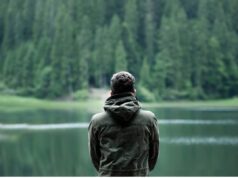In today’s fast-paced world, education extends far beyond the traditional classroom setting.
The concept of learning has evolved, transcending the confines of school walls and fixed schedules. This article delves into the art of integrating lifestyle education into everyday activities, offering students a holistic approach to knowledge acquisition that complements their academic endeavours.
In the journey of academia, phrases like “write my papers for me” often echo in the hallways, symbolizing a cry for help in managing the overwhelming demands of college life. It’s a testament to the need for educational strategies that align with the lifestyles and unique rhythms of students’ lives.
Embracing Learning as a Lifestyle
Understanding Lifestyle Education
Lifestyle education is about making learning a natural and enjoyable part of your daily routine. It’s about recognizing opportunities for growth in every aspect of life, from the mundane to the magnificent. Students can harness the wealth of knowledge available in their everyday experiences, transforming every moment into a learning opportunity.
Strategies for Incorporating Learning
- Identify Learning Moments
- Make it a Collaborative Effort
Identify Learning Moments: Start by recognizing the potential in ordinary activities. Grocery shopping can teach budgeting, while cooking becomes a lesson in chemistry and nutrition. Each task has something to teach if you’re willing to look.
Make it a Collaborative Effort: Engage with peers, family, and community members. Discussing current events or debating ideas not only broadens your perspective but also reinforces your learning in a social and dynamic way.
Balancing Academic and Lifestyle Education
Juggling Studies and Life
The challenge for many students is finding the balance between school work and life’s lessons. It’s about prioritizing and integrating, not choosing one over the other. Structuring your day to include both academic studies and life experiences can lead to a more fulfilling educational journey.
Merging Assignments with Daily Activities
Homework and assignments need not be isolated tasks. Connect your studies to your interests. If you’re passionate about the environment, relate your science homework to sustainability practices at home. This connection not only enriches your understanding but also keeps you engaged and motivated.
Learning in the Digital Age
The Role of Technology
In this digital era, learning is at our fingertips. From online courses to educational apps, technology has opened up endless possibilities for students to learn outside the traditional classroom. The key is to use these tools wisely and to complement, not replace, personal interactions and hands-on experiences.
Staying Mindful of Digital Overload
While technology is a powerful ally, it’s essential to remain aware of its potential to overwhelm. Establish clear boundaries and take regular breaks from screens to balance your digital intake with real-world experiences.
The Social Dimension of Learning
Peer-to-Peer Education
Learning with and from your peers is a powerful tool. Study groups, discussion forums, and collaborative projects encourage the exchange of ideas and knowledge, making learning a shared experience.
Community Engagement
Volunteering, attending local events, or participating in clubs are all ways to learn outside the academic setting. These activities offer practical experience and the opportunity to apply classroom knowledge in real-world scenarios.
Conclusion
Incorporating lifestyle education into your daily activities empowers you to take control of your learning journey. It allows for a more diverse, engaging, and applicable educational experience. As you embark on this path, remember that the best thesis writing service isn’t always an external resource—it can be your ability to weave learning into the fabric of your life, creating a tapestry of knowledge that is both rich and personally meaningful.
Image via UnSplash













